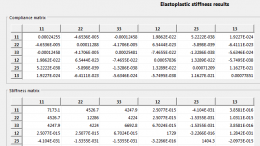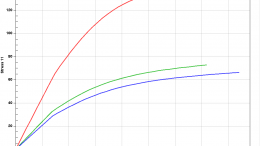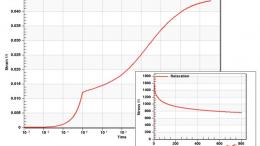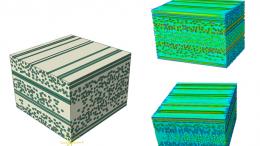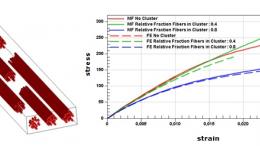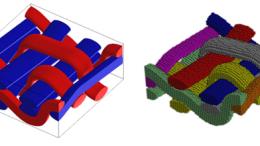
Mechanical properties for Material Engineering applications
Material engineering applications involving mechanical material properties rely on two tools: Digimat-MF and Digimat-FE.
Specific capabilities have also been developed to model woven composite (2D, 2.5D and 2D braided).
Digimat-MF to simulate mechanical performances of composite materials
For all types of composite material, mechanical performances like- Stiffness
- Creep and relaxation
- Strength and durability
This technology predicts in a very fast way:
- the stress-strain curve of the composite
- the creep and relaxation behavior of the composite
- the average stress and average strain in each constituent of the composite
- the strength of the composite
Thanks to its ease of use, Digimat-MF constitutes as a virtual laboratory where a large number of materials can be tested in a very short period of time. The design of a composite material can then be optimized to reach specific targets. Viscous effects and coatings can also be taken into account.
Digimat-FE to simulate mechanical performances of composite materials
A more in-depth analysis of the behavior of your composite can be performed in Digimat-FE. In this tool, the complete stress and strain distribution inside your composite material can be investigated. Effects like decohesion at the fiber-matrix interface and clustering can be studied. Dedicated statistical tools are available to post-process the FE results to take smart decisions on the improvement of the design of your material.
“The application of Digimat-MF and Digimat-FE paved the way for me to give an insight into the influence of microstructure on the overall mechanical and brittle damage behavior of highly porous sound absorbing ceramics. I was able to contribute to the improvement of material strength by new material design while keeping the good sound absorption."
-Reza Malekmohammadi, Research Assistant, BIME

